Year in review: Major events that shaped 2024 for Iran and the world
By Alireza Akbari
With curtains down on 2024, the year was bookended by tragedy—beginning and ending with genocide. Yet, it will be remembered for the extraordinary resilience and unyielding spirit of the people of Gaza.
This was a year in which the Axis of Resistance stood united against the Israeli regime and its Western allies, demonstrating remarkable resolve and determination in the face of relentless adversity.
As we reflect on the defining moments of 2024, several events stand out for their significance.
From the attack on the Iranian consulate in Damascus to the Iranian military operations True Promise I and II, the martyrdom of President Ebrahim Raeisi and Foreign Minister Hossein Amir-Abdollahian, and the dramatic ousters of Bashar al-Assad in Syria and Sheikh Hasina Wajid in Bangladesh, the year was marked by seismic shifts in global and regional power dynamics.
Other events included the devastating mass pager explosions in Lebanon, the re-election of Donald Trump in the United States, the International Criminal Court’s arrest warrants against Benjamin Netanyahu and Yoav Gallant, catastrophic floods in Pakistan and Afghanistan, and the Paris Olympics and Paralympics.
Overall, 2024 was a year of unparalleled challenges and defining moments, leaving an indelible mark on the pages of history.
Israeli airstrike targets Iranian consulate in Damascus
[April 1, 2024]
On April 1, 2024, an Israeli airstrike struck the annex of the Iranian consulate in Damascus, Syria, resulting in several casualties, including high-ranking Iranian military personnel.
Among those martyred was Brigadier General Mohammad Reza Zahedi, a senior commander in the Islamic Revolution Guards Corps (IRGC), and his comrades.
The airstrike targeted the consular section of the Iranian embassy complex located in the Mezzeh district, completely destroying the building. In addition to General Zahedi, the attack claimed the lives of several others, including Brigadier General Mohammad Hadi Haji Rahimi.
The Israeli assault was widely condemned as a blatant violation of international law and an infringement on Syrian sovereignty by the Tel Aviv regime.
After the dastardly attack, Iran vowed to avenge the assassination of its top military commanders.
Operation True Promise I: Iran’s retaliation to Israeli airstrike
[April 13, 2024]
In a calculated and carefully planned response to the Israeli airstrike that targeted its consulate in Damascus, Iran launched 'Operation True Promise I' on April 13, 2024.
In the early hours of April 13, IRGC's Aerospace Force, in coordination with other military units, executed a large-scale missile and drone attack on strategic locations in Israeli-occupied territories.
The operation involved the deployment of more than 300 missiles and drones, showcasing Iran's advanced military capabilities, especially in the arena of missiles and drones.
The primary targets of the operation included key Israeli military installations and infrastructure.
The IRGC reported a striking success rate, with approximately 90 percent of the projectiles successfully hitting their intended targets, inflicting significant damage on Israel's military assets.
IRGC Commander-in-Chief Major General Hossein Salami praised the operation's effectiveness, stating that it achieved a success that exceeded expectations.
In a formal statement following the operation, the IRGC declared that 'Operation True Promise I' was a natural and legitimate response to Israel's illegal airstrike on the Iranian consulate in Damascus.
The statement emphasized Iran's unwavering commitment to defending its sovereignty and responding decisively to acts of aggression.
Martyrdom of President Raeisi and Foreign Minister Amir-Abdollahian
[May 19, 2024]
The political landscape in Iran underwent a profound transformation following the martyrdom of President Ebrahim Raeisi and Foreign Minister Hossein Amir-Abdollahian on May 19, 2024, in East Azerbaijan province. Their tragic loss plunged the nation into deep mourning.
In response to the tragedy, Ayatollah Seyyed Ali Khamenei, the Leader of the Islamic Revolution, declared five days of national mourning, reflecting the pervasive sorrow felt across the country.
Martyr Raeisi, a key figure in Iranian politics who rose through the ranks to assume the top executive post, was noted for his emphasis on the "eastward look" and neighborly policies.
He led the nation through critical challenges and believed in circumventing Western sanctions by relying on internal capacities and regional alliances.
Foreign Minister Amir-Abdollahian, a seasoned diplomat, also played a crucial role in strengthening Iran’s alliances within BRICS and enhancing relations with Russia, China, and the Global South.
Following their martyrdom, massive funeral processions in Tehran and other cities underscored the Iranian people's grief and resolve. Chants of "Death to America" and "Death to Israel" rang through the streets, reflecting widespread outrage and solidarity.
Tens of thousands took to the streets across major Iranian cities, from Tehran to Tabriz, to pay their respects to the beloved leaders.
Iran's presidential election
[June - July 2024]
In the wake of the martyrdom of President Raisi in May 2024, Iran found itself at a crucial juncture.
The nation moved swiftly to hold a snap presidential election, culminating in the election of Masoud Pezeshkian, a veteran parliamentarian with a medical background.
The first round of the presidential election took place on June 28, 2024, where Pezeshkian secured approximately 44.4 percent of the votes. His main rival, Saeed Jalili, received around 40.5 percent.
With no candidate achieving an outright majority, a runoff election was scheduled for July 5, 2024. In the second round, Pezeshkian emerged victorious, garnering 54.8 percent of the vote compared to Jalili's 45.2 percent.
His campaign resonated with a diverse electorate, particularly among the youth and urban populations. Key slogans, such as "Hope for Tomorrow," underscored his commitment to economic revitalization and improving international relations, while also advocating for greater economic reforms.
Following his electoral victory, Pezeshkian received a formal endorsement from Ayatollah Seyyed Ali Khamenei, the Leader of the Islamic Revolution.
In his address, the Leader expressed hope that Pezeshkian’s presidency would guide the nation toward stability and progress while addressing the pressing challenges faced by the Iranian people.
Assassination of Ismail Haniyeh in Tehran
[July 31, 2024]
On July 31, 2024, Ismail Haniyeh, the leader of the Gaza-based resistance movement Hamas, was assassinated in Tehran after attending the inauguration of the newly-elected Iranian president.
Haniyeh was staying at a compound in northern Tehran, a location known for hosting high-level Iranian and foreign dignitaries and members of the armed forces.
Israeli military affairs minister Israel Katz recently acknowledged Israel's role in the assassination, marking a rare instance of the Israeli regime openly claiming responsibility for such a covert action.
In response to the assassination, Ayatollah Khamenei condemned the act, asserting that Haniyeh's "blood will never be wasted."
A massive funeral for Haniyeh was held in Tehran on August 1, 2024, with Ayatollah Khamenei leading the prayers, a gesture that underscored the significance of Haniyeh’s position in the resistance axis.
It was also a powerful demonstration of Iran's unflinching support for the resistance axis.
Pager and walkie-talkie explosions in Lebanon
[September 17, 2024]
On September 17, 2024, a series of coordinated explosions involving electronic devices devastated Lebanon, resulting in at least 12 deaths and injuries to more than 2,800 people, mostly civilians.
The following day, a second wave of attacks took place, involving booby-trapped walkie-talkies that detonated across the country, which claimed an additional 20 lives and injured over 450 individuals.
In total, the terror attacks resulted in at least 32 deaths and more than 3,250 injuries, overwhelming medical facilities and causing widespread panic throughout the Arab country.
Investigations into the attacks revealed that Israeli spy agencies, including Mossad, had orchestrated the cowardly attacks over a decade-long period.
They infiltrated the supply chains of the Lebanese resistance movement Hezbollah by introducing compromised electronic devices, such as pagers and walkie-talkies, which were later distributed among Hezbollah members across the country.
These devices were secretly rigged with explosives and remotely detonated, amplifying the destruction and chaos caused by the attacks.
Most of the victims were children and women, which pointed to the indiscriminate nature of the attacks.
Assassination of Hezbollah leader Sayyed Hassan Nasrallah
[September 27, 2024]
On September 27, 2024, Sayyed Hassan Nasrallah, the Secretary-General of the Hezbollah resistance movement, was assassinated in a targeted Israeli airstrike in Beirut, Lebanon.
The attack struck residential buildings in the Haret Hreik area of the Dahieh suburb in southern Beirut.
The Israeli Air Force, using F-15I fighter jets, executed the operation, codenamed "New Order." It involved the deployment of more than 80 bombs, including US-made 2,000-pound bunker-buster munitions specifically designed to penetrate fortified underground facilities.
The airstrike resulted in at least 33 deaths, including Ali Karaki, commander of Hezbollah's southern front, and Brigadier General Abbas Nilforoushan, deputy commander of the IRGC.
In addition, over 195 individuals sustained injuries, including civilians living near the targeted site.
Hezbollah swiftly confirmed Nasrallah's martyrdom and vowed to continue its military operations against Israel despite the devastating blow to its leadership.
In the aftermath of the assassination, Sheikh Naim Qassem was elected as the new Secretary-General on October 29, 2024, marking a significant transition for the organization.
The assassination of Sayyed Nasrallah was followed by a series of sophisticated attacks against key Israeli military installations in the occupied Palestinian territories.
Operation True Promise II - Iran's retaliation to Israeli aggressions
[October 1, 2024]
On October 1, 2024, Iran carried out 'Operation True Promise II' targeting Israeli military facilities in retaliation for the assassinations of prominent figures, including Hamas leader Ismail Haniyeh, Hezbollah leader Sayyed Hassan Nasrallah, and IRGC General Abbas Nilforoushan.
The operation focused on strategic Israeli military and intelligence locations, including Nevatim Airbase in the Negev Desert, Tel Nof Airbase, and Mossad headquarters.
The attack, which involved hundreds of long-range missiles, was a legitimate act of self-defense, as the Islamic Republic asserted its right to respond to Israeli aggression.
The Iranian Armed Forces later described the operation as a successful assertion of military capability and issued a warning of further actions if the regime continued its aggression.
Although the regime censored information about the damages resulting from the operation, some independent journalists did reveal the details and had to face the consequences as well.
Jeremy Loffredo, an investigative journalist with the Grayzone website, was one of those who reported on Iran’s retaliatory military operation and his video report attracted significant attention.
On his assessment of the damage caused by Iranian ballistic missiles, Loffredo told the Press TV website that dozens of missiles had struck inside Nevatim Airbase, evading Israeli air defense systems.
“In relation to the Nevatim Airbase, which has historically been the launch point for deadly air operations inside Gaza and more recently Lebanon, I only was able to gather eyewitness testimony, considering the base is an entirely closed military zone behind miles of fencing in the Negev desert."
Assassination of iconic Hamas leader Yahya Sinwar
[October 16, 2024]
Yahya Sinwar, the celebrated leader of Hamas and a symbol of Palestinian resistance, died on the frontline of the war on October 16, 2024, in southern Gaza's Rafah city.
His body was discovered with a combat vest and an AK-47 rifle by his side amid the rubble. His final moments were immortalized and showed his extraordinary defiance and resilience.
Sinwar, known for his charismatic leadership and pivotal role in resistance efforts, was the brain behind Operation Al-Aqsa Flood and featured prominently on the regime’s ‘kill list.’
Despite numerous assassination attempts over the years, including since October last year, Sinwar played an instrumental role in coordinating and supervising military operations in Gaza.
While many believed he was hiding in the extensive network of underground tunnels throughout the besieged territory, images that emerged on social media revealed him above ground, actively engaged in combat with Israeli forces.
Khalil Hayya, a senior leader of the Hamas resistance movement, paid tribute to Sinwar's legacy in a televised address, describing him as a "steadfast, brave, and intrepid" fighter.
"Sinwar sacrificed his life for the cause of our liberation," Hayya stated, noting that he "met his end standing brave, with his head held high, holding his firearm, firing until his last breath—until the last moment of his life."
Sinwar's death only strengthened the resolve of resistance fighters in Gaza, which was evident from a significant increase in operations against the Israeli occupation forces.
Re-election of Donald Trump as 46th president of the US
[November 5, 2024]
Donald J. Trump was elected as the 46th president of the United States, defeating incumbent Vice President Kamala Harris in the highly anticipated 2024 presidential election in early November.
The election took place on November 5, where Trump secured 162 million votes, representing 51.8 percent of the popular vote, while Harris garnered 150 million votes or 48.2 percent.
In the Electoral College, Trump triumphed with 320 electoral votes compared to Harris’s 218.
His success was buoyed by strong performances in key battleground states, including Florida, Pennsylvania, Michigan, and Georgia, where he garnered significant support.
While Harris maintained strong leads in traditionally Democratic states such as California, New York, and Illinois, she was unable to overcome Trump's strategic targeting of critical swing states.
Trump's campaign slogan, "Make America Strong Again," resonated particularly well with voters in rural and suburban areas, focusing on themes of national security and economic revitalization.
Trump's return to power, however, was not welcomed by the anti-war lobby in the United States, who say that the president-elect is a war hawk who ordered the assassinated of top Iranian anti-terror commander General Qassem Soleimani and his comrades in January 2020.
ICC arrest warrants for Netanyahu and Gallant
[November 21, 2024]
On November 21, 2024, the International Criminal Court (ICC) issued arrest warrants for Israeli Prime Minister Benjamin Netanyahu and former military affairs minister Yoav Gallant, citing their responsibility for war crimes and crimes against humanity during the Israeli genocidal campaign in Gaza.
The ICC accused Netanyahu and Gallant of employing starvation as a method of warfare by restricting essential supplies to Gaza's civilian population, leading to severe humanitarian consequences.
The charges include murder, persecution, and other inhumane acts committed during the conflict.
The issuance of these warrants imposes an obligation on the ICC's 124 member states to arrest Netanyahu and Gallant should they enter their territories.
However, both Israel and the United States have historically refrained from joining the ICC and have been critical of the court's actions, raising questions about the practical implications of the warrants.
Many countries have welcomed the arrest warrants and offered cooperation with the ICC. However, many other countries, including members of the ICC, have refused to comply with the warrants.
2024 Summer Olympics and Paralympics
[July 26 - September 8, 2024]
The 2024 Summer Olympics and Paralympics in Paris marked a historic celebration of athletic excellence. The Olympic Games were held from July 26 to August 11, 2024, attracting unprecedented attention with over 9.5 million tickets sold, setting a new record for Olympic attendance.
A total of 206 National Olympic Committees (NOCs) participated, showcasing approximately 10,500 athletes competing across 32 sports. The official slogan, "Games Wide Open" (French: "Ouvrons grand les Jeux"), encapsulated the Games' commitment to inclusivity and accessibility.
Following the Olympics, the Paralympic Games took place from August 28 to September 8, 2024.
A total of 169 delegations competed, with approximately 4,400 athletes participating. The Paralympics shared the same slogan as the Olympics, reinforcing the spirit of inclusion.
Iran's performance in both the Olympics and Paralympics was impressive with athletes grabbing many medals, especially in wrestling, taekwondo and track and field events.
The sports extravaganza in Paris was also marked by massive protests against the participation of Israeli athletes with many athletes publicly displaying solidarity with Palestine.
Many international athletes refused to shake hands with their Israeli opponents in a sign of protest against the International Olympic Committee's decision to allow the Israeli athletes to take part,
Political turmoil in Bangladesh and Sheikh Hasina's ouster
[August 2024]
In August 2024, Bangladesh experienced significant political upheaval, culminating in the resignation and departure of Prime Minister Sheikh Hasina amid countrywide protests.
On August 5, she stepped down after weeks of intense student-led demonstrations against an unpopular government job quota system. These protests, which turned violent, led to numerous casualties and widespread unrest across the South Asian country.
Faced with pressure, Hasina fled the country and arrived in India on the same day as her resignation.
Initially sparked by demands to reform the quota system, which many activists viewed as discriminatory, the protests evolved into a broader challenge to Hasina’s 15-year rule.
Following her departure, the Bangladesh Army announced the formation of an interim government. This new administration has initiated legal proceedings against Hasina, including investigations into alleged corruption and human rights violations during her time in office.
As of December 2024, Sheikh Hasina remains in India, where she fled following her resignation.
The Indian government has received the extradition request from Bangladesh but has yet to publicly comment on the situation. The developments continue to unfold, with ongoing discussions about the potential for Hasina's return to Bangladesh to face legal proceedings.
In a significant shift following Hasina's resignation, Nobel Peace Prize laureate Dr. Muhammad Yunus was appointed head of the interim government.
He took the oath of office on August 8, 2024, administered by President Mohammed Shahabuddin, marking a new chapter in the country’s leadership during a period of uncertainty and transition.
Syria crisis and departure of Bashar al-Assad
[December 8, 2024]
One of the most defining moments of the year was the departure of President Bashar al-Assad from Damascus following the takeover of the Syrian capital by West-backed militant groups.
Following the takeover of Damascus by militant groups, led by Hay’at Tahrir al-Sham (HTS), the power shift has plunged the Arab country into deeper uncertainty and chaos.
Soon after the fall of the Assad government, the Israeli regime launched a series of airstrikes across Syria, targeting key locations including Damascus, Homs, Tartous, Latakia, and Palmyra.
The strikes were accompanied by ground incursions, as tanks and armored bulldozers penetrated Syrian territory, beyond the occupied Golan Heights to Qatana, barely 30 kilometers from Damascus.
Syria’s new ruling entity remains beleaguered. Compounding its challenges, the northern regions of Syria remain under the control of the US-backed Syrian Democratic Forces (SDF).
Also, many shocking videos have emerged in recent days showing militants targeting minorities, including brutal acts such as shootings and throat-slashing.
Humanitarian crises have emerged as another critical challenge for the new rulers with the UN World Food Programme (WFP) sounding the alarm on Syria’s worsening food insecurity.
Afghanistan-Pakistan floods
[March 6 – September 4, 2024]
The Afghanistan-Pakistan floods of 2024 stand out as one of the most devastating natural disasters of the year, resulting in significant loss of life and widespread destruction across both countries.
From March 6 to September 4, prolonged heavy monsoon rains led to severe flooding that affected multiple regions, with an estimated death toll of approximately 1,084 fatalities.
The floods inundated villages, agricultural lands, and vital infrastructure, displacing hundreds of thousands of individuals who sought refuge in temporary shelters and camps.
The destruction of critical infrastructure—roads, bridges, and communication lines—severely hampered relief efforts and further complicated rescue operations.
In addition to the immediate loss of life, the floods have devastated local economies, with the destruction of crops and livestock leading to food shortages and increased economic hardships for many communities.
The standing water and unsanitary conditions also created favorable environments for the spread of waterborne diseases, posing significant health risks to the affected populations.
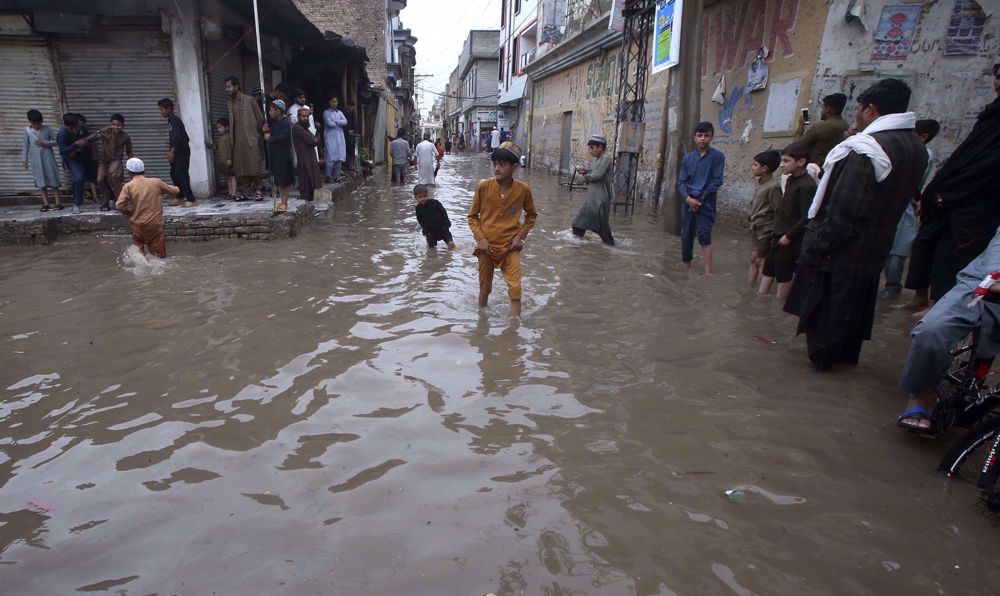
Hamas confirms handing approval of Gaza ceasefire deal to mediators
VIDEO | Iran: Show of strength
UNRWA will ‘stay, deliver’ aid to Palestinians despite Israel’s ban: Lazzarini
Explainer: What makes Iran's Rezvan and Raad loitering munitions prized assets?
VIDEO | Unseen agony: Missing loved ones of genocide in Gaza
Iran cuts gold import tariff to zero
Pezeshkian: Iran determined to develop, boost ties with neighbors
VIDEO | Israel, Hamas ceasefire agreement: Closer than ever


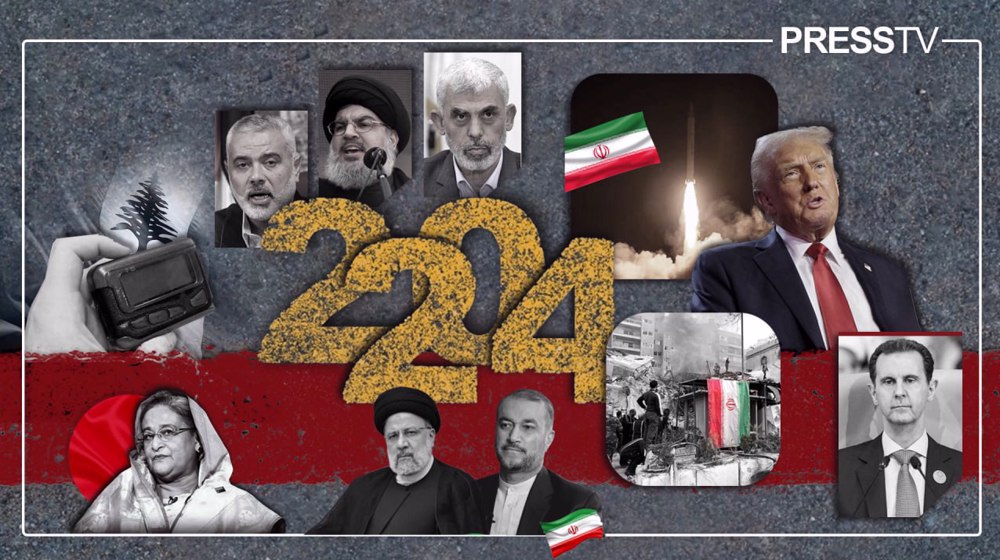
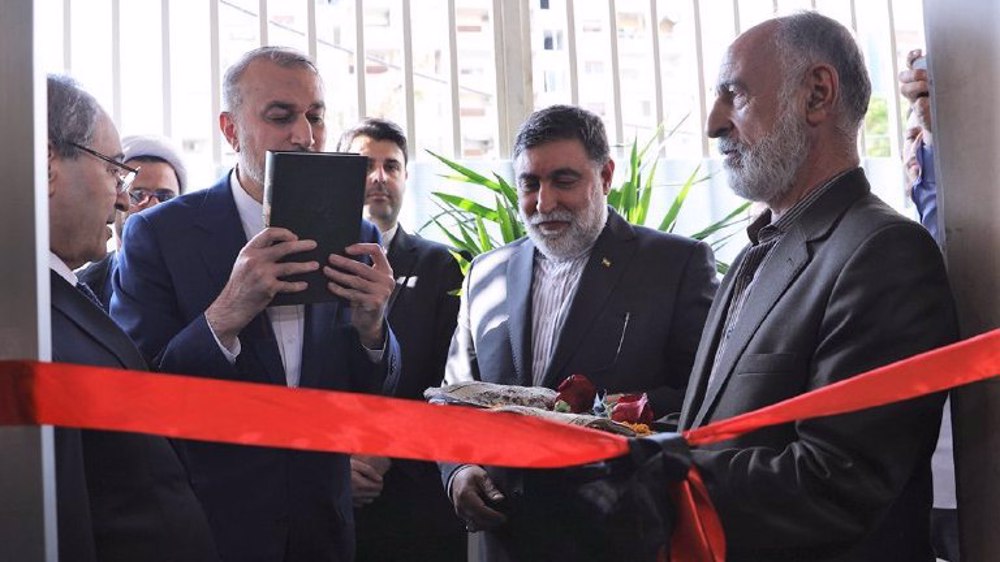
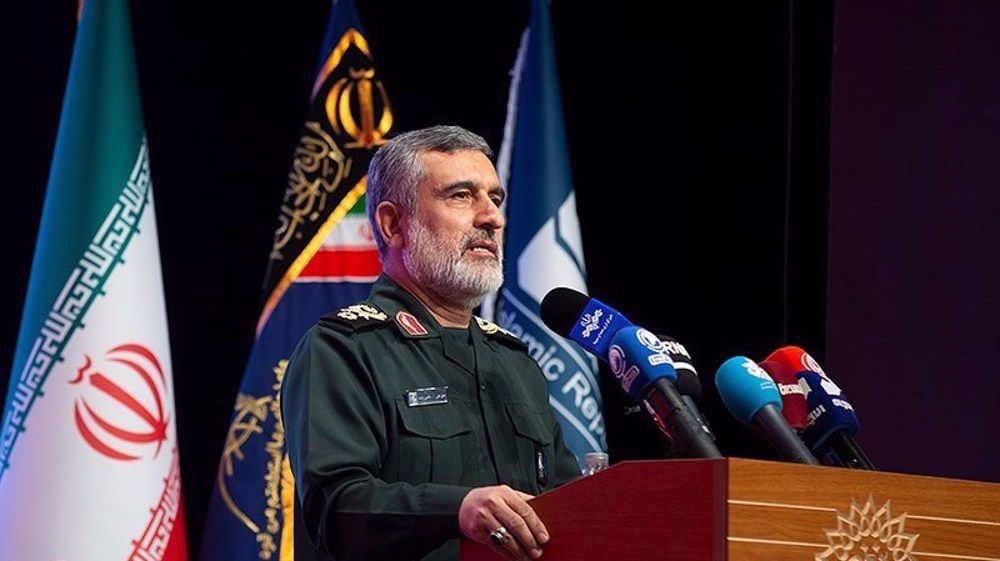
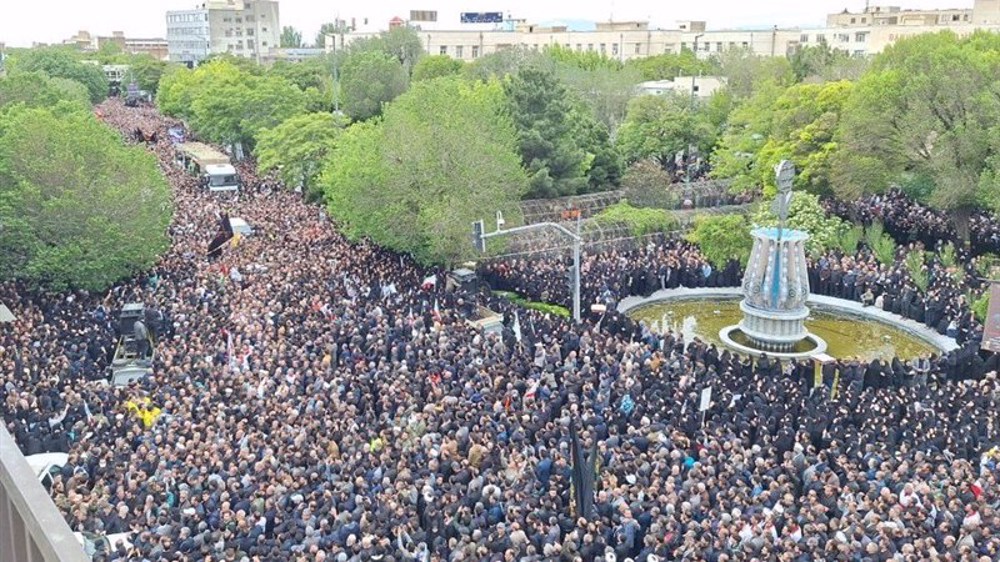
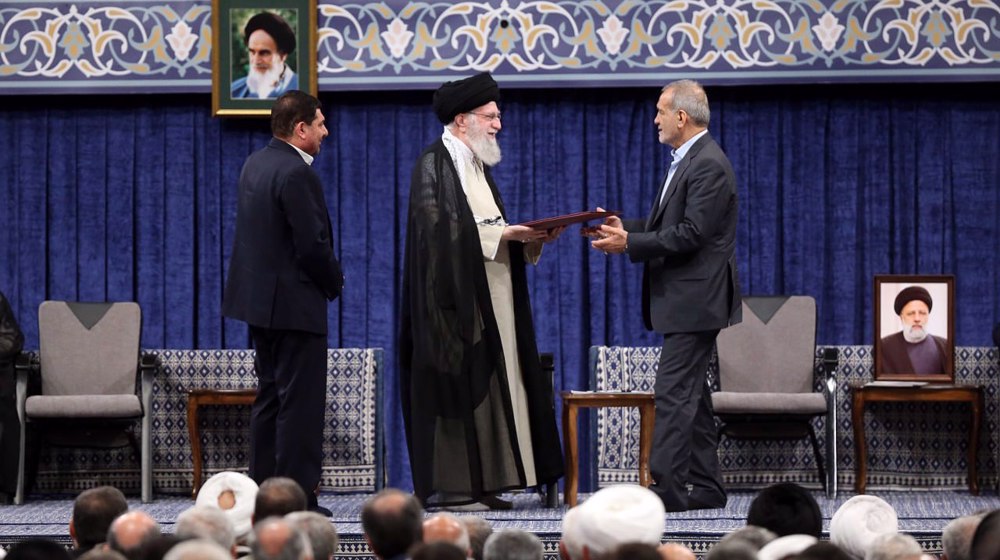
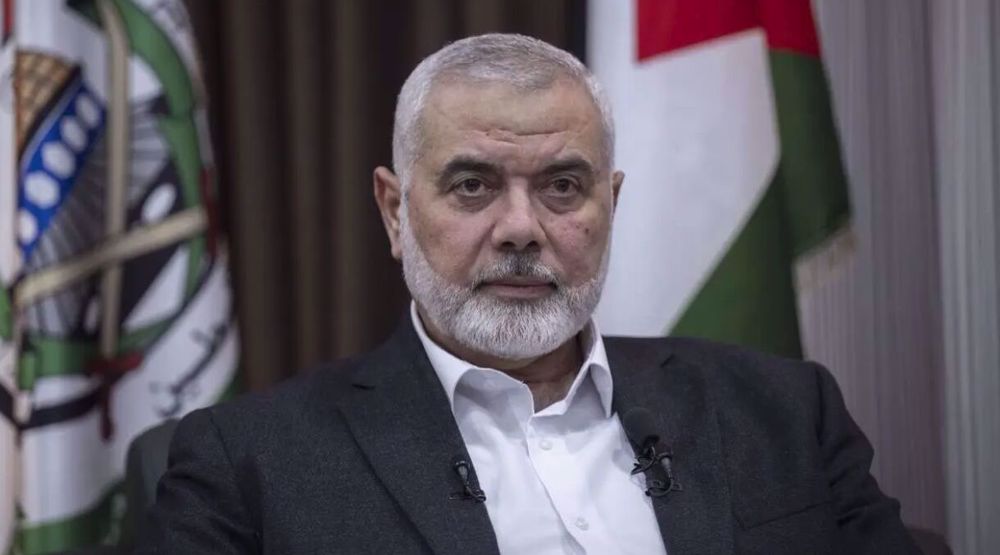

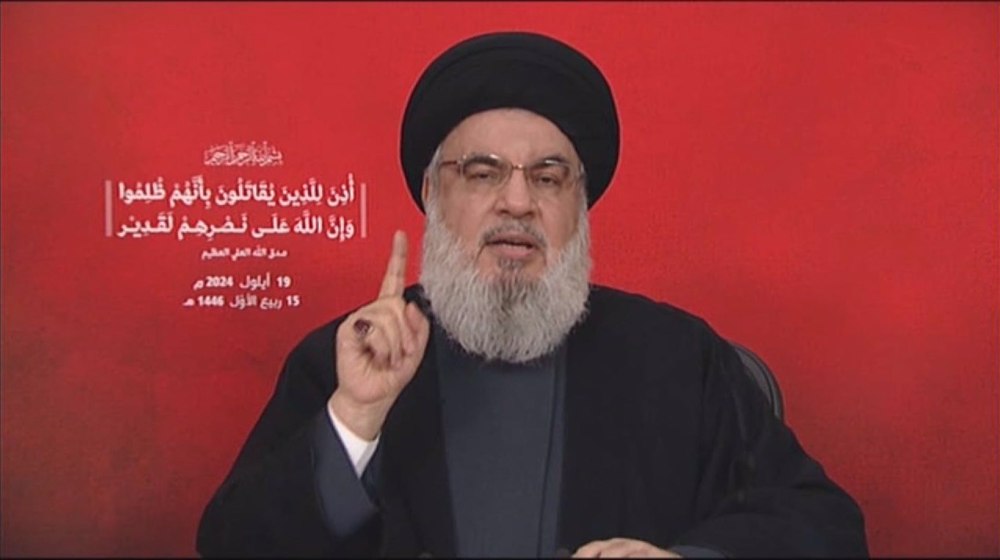
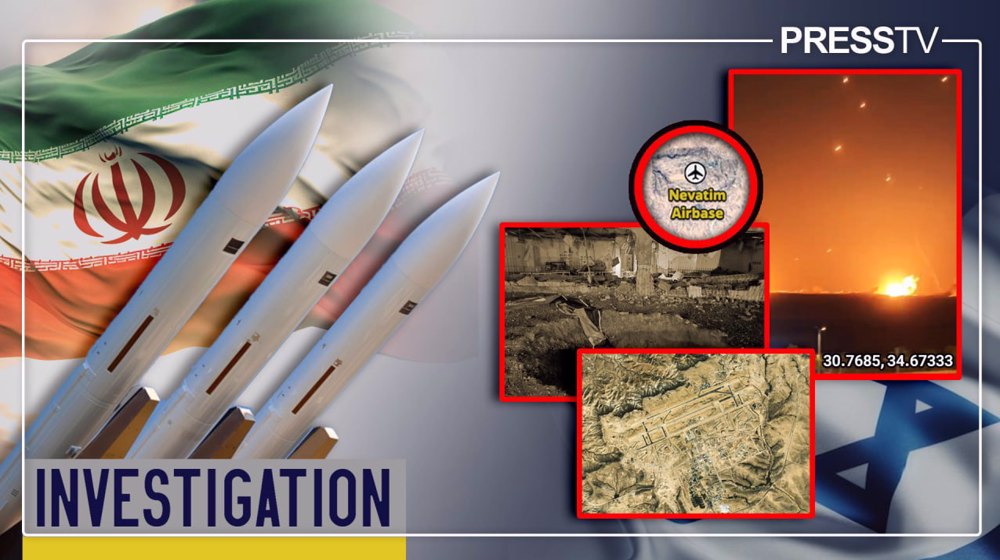
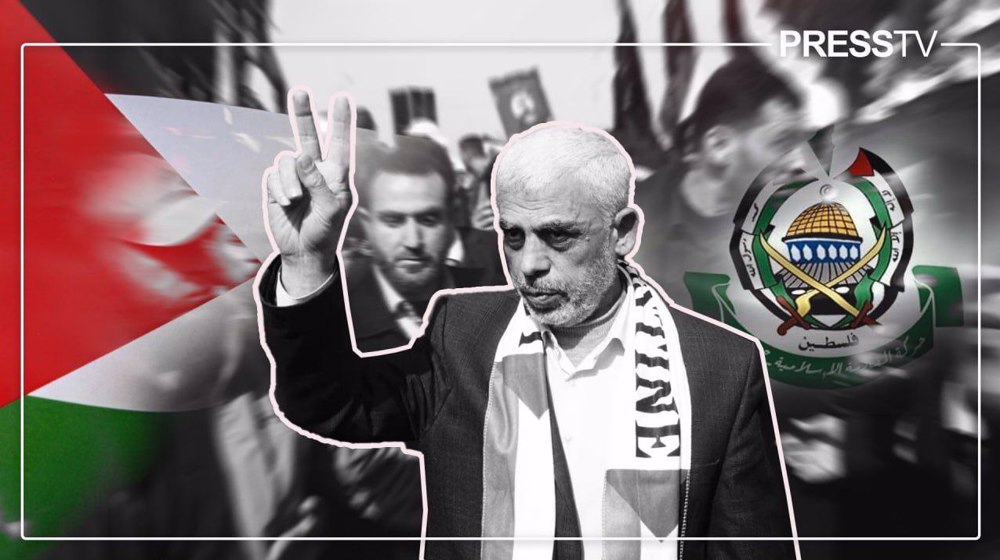

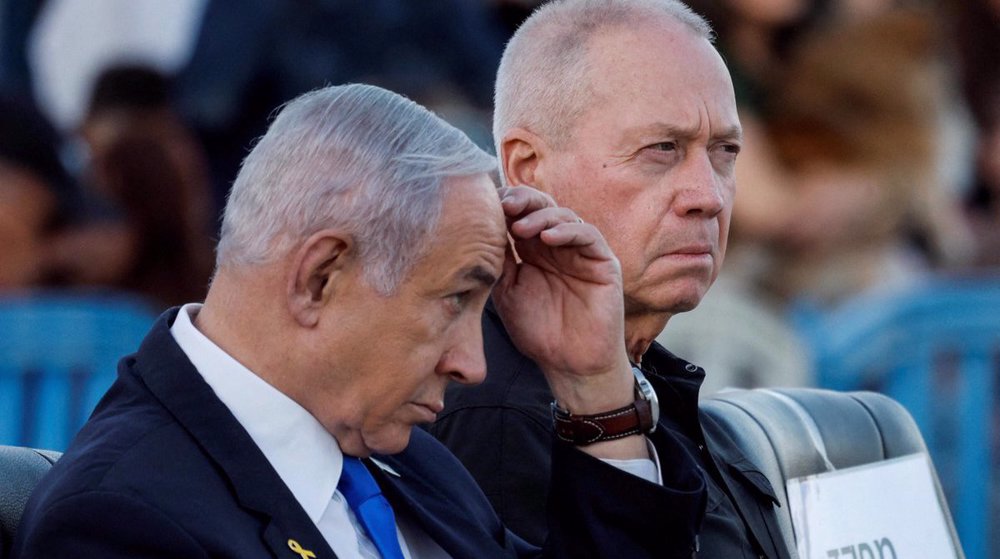

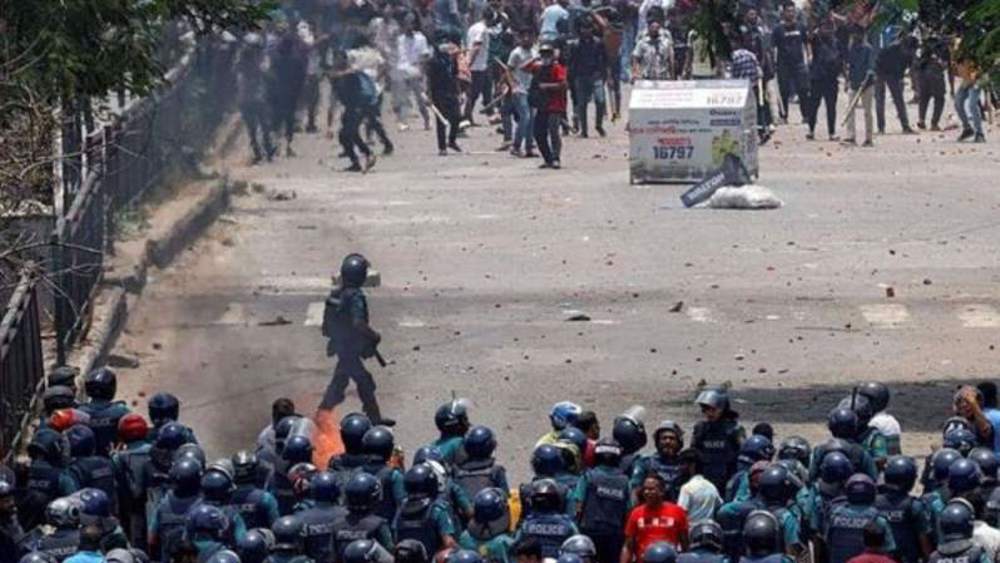
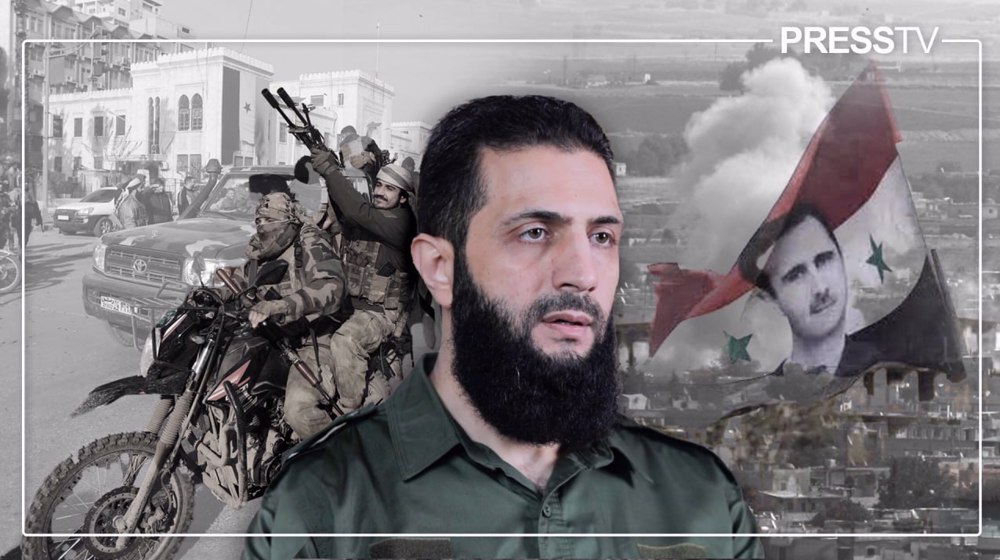
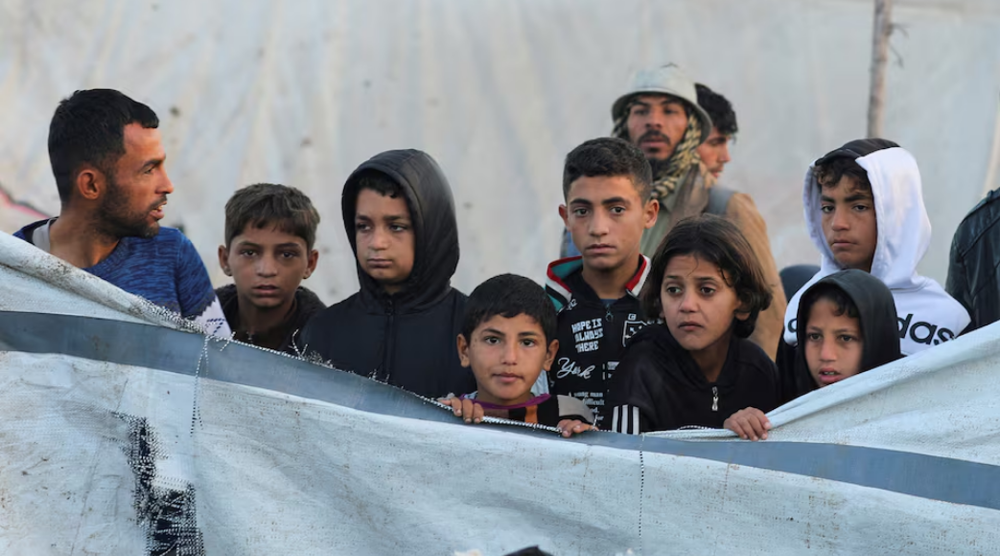
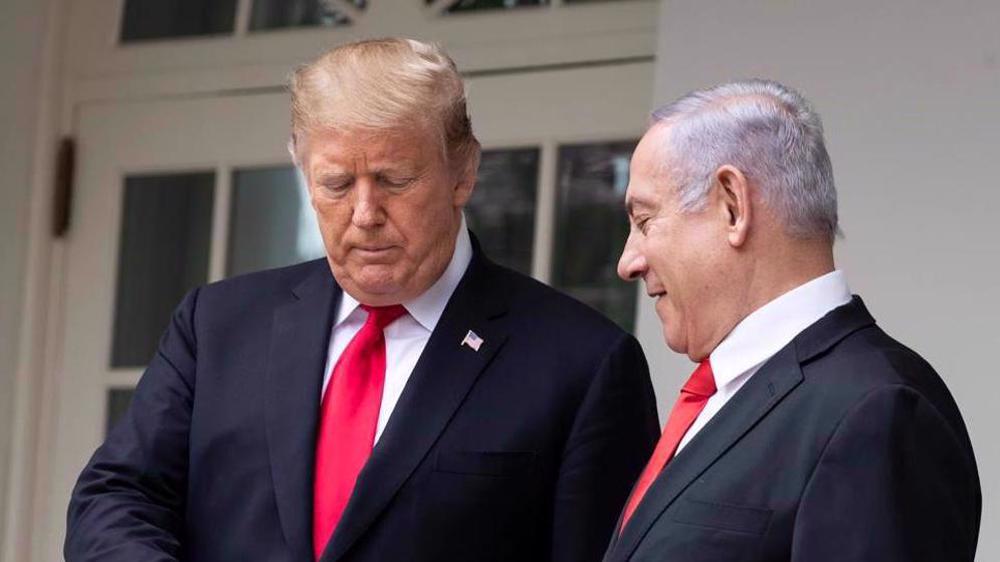
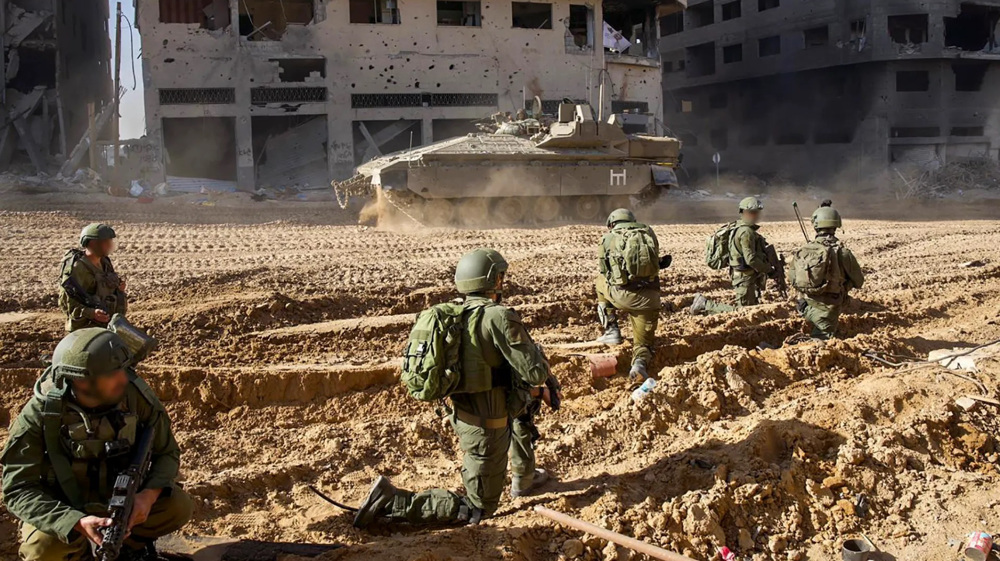



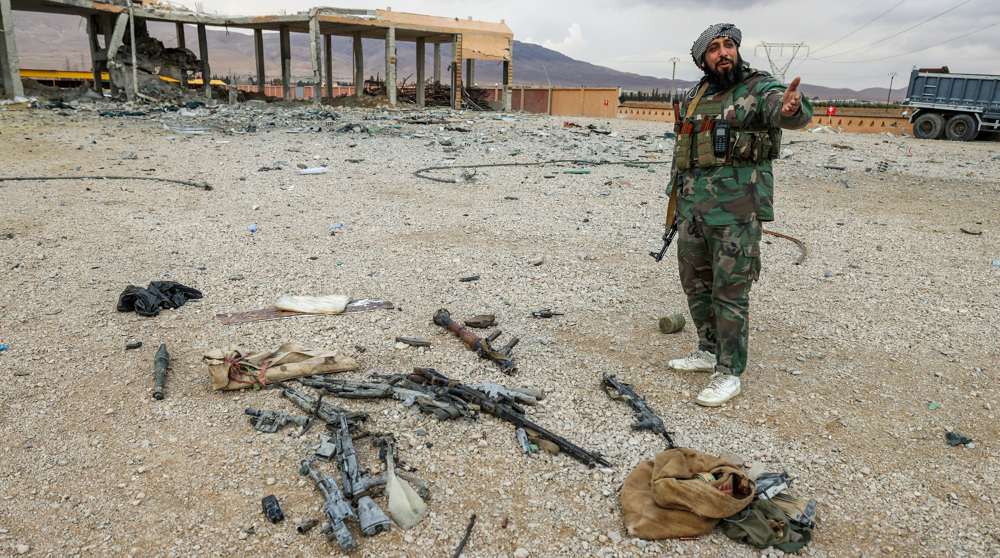
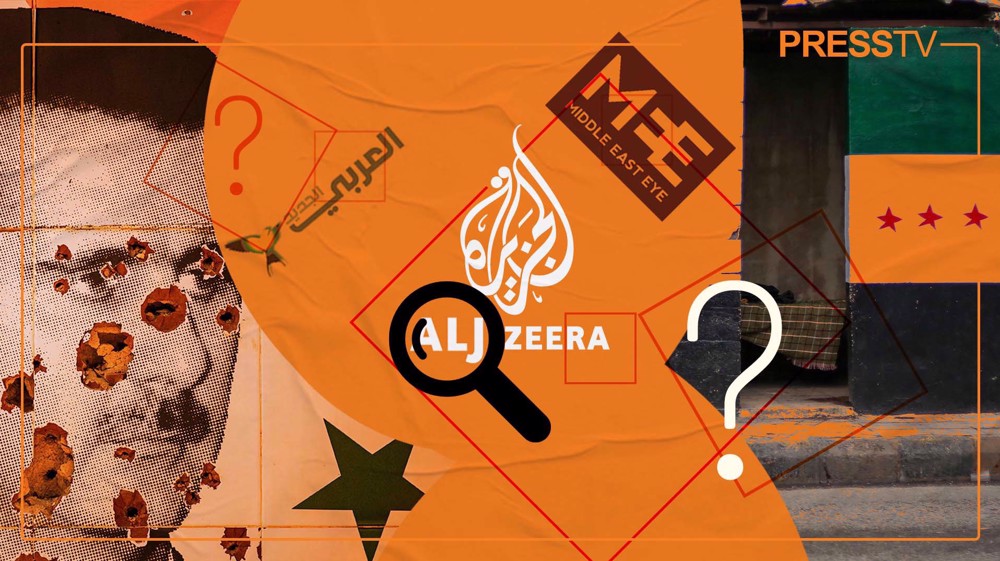

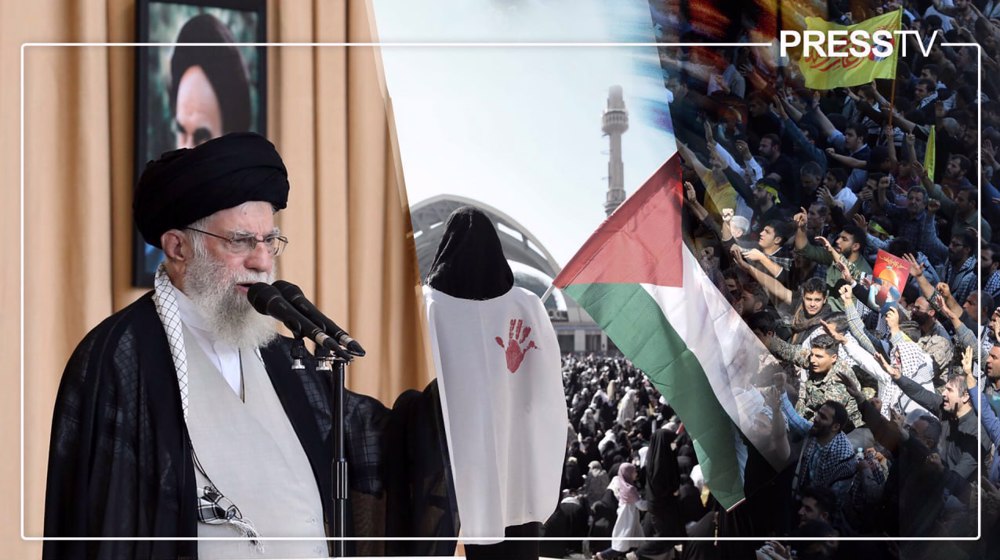

 This makes it easy to access the Press TV website
This makes it easy to access the Press TV website